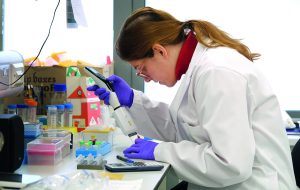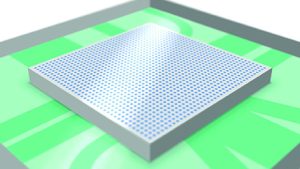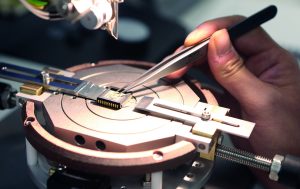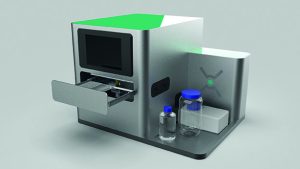
What if we could combine physics with biology and rapidly develop new and affordable, individualised medications on the surface of a silicon chip for the treatment of cancer, metabolic disorders, and infectious diseases? Now imagine if this breakthrough technology could harness the power of nature and offer pathways to address humanity’s most critical challenges in medicine, manufacturing and agriculture.
Synthetic biology is not a distant fantasy of science fiction but an interdisciplinary technology aiming to make biology easier to engineer. The technology is a convergence of advances in chemistry, biology, computer science and engineering for the design and fabrication of biological components, solutions and systems that do not exist in the natural world.
The Engineering Biology Research Consortium defines synthetic biology as a biology-based toolkit that uses abstraction, standardisation and automated construction to change how we build biological systems and expand the range of possible products.
To fast-track development and bring its DNA synthesis platform for scalable, high fidelity and rapid gene synthesis to market, biotech startup Evonetix selected Analog Devices as a partner, citing its biosensor, MEMS processing and semiconductor microfabrication expertise.
The gene synthesis technology can be used in drug discovery and development, therapeutic molecule design and synthesis and precision medicine and diagnostics.
The company wanted to achieve fast-track development, scale up and commercialisation of an affordable, plug and play, desktop DNA writer to enable scientists in laboratories around the world to rapidly synthesise long-chain DNA.
Challenging DNA synthesis
For more than 30 years, DNA has been synthesised by constructing individual strands and combining them to create longer, double-stranded DNA. Current techniques are slow and include random errors, requiring time-consuming further analysis and sequencing to ensure acceptable quality. As a result, the process inhibits the rapid development of new drug treatments and the advancement of healthcare.

Figure 1: DNA is synthesised at independently controlled miniaturised reaction sites on the surface of a silicon chip

Figure 2: Miniaturised reaction sites on chip
Evonetix’s proposed proprietary approach is to develop a platform that integrates physics with biology, regulating the synthesis of DNA at miniaturised reaction sites on the surface of a silicon chip.
Following synthesis, a breakthrough process will identify and remove errors, providing accuracy several orders of magnitude better than conventional methods, reports Evonetix.
Synthetic DNA technology provides personalised, individualised medicine that enables medical professionals to make more informed and accurate patient care decisions.
Evonetix collaborated with Analog Devices, accessing its biosensor, MEMS processing and semiconductor microfabrication capabilities to achieve its vision for rapid biosynthesis.
In January 2019, Evonetix began a collaboration with Analog Garage, the company’s eponymous internal incubator and innovation centre in order to fast track the development and scale-up of a desktop DNA writer. An aggressive goal was set to complete the development of an MVP (minimum viable product) by early 2022.
The collaboration provides an opportunity for ADI to enter the growing synthetic biology market and the partners are working together to increase the speed and reduce the cost of gene assembly in order to “provide novel strategies that can be used to produce affordable medications and treat a wide range of diseases globally”.
The Analog Garage brings together engineers, data scientists, and hardware and software people from leading research universities and deep tech startups. Many have PhDs in signal processing, machine learning, or materials science, all non-traditional skillsets for a typical semiconductor company. They are motivated to create new solutions and breakthrough technologies in a fast-moving, startup atmosphere, says the company.
Miniaturised structures
Evonetix and Analog Garage are jointly developing an integrated mems-asic to miniaturise the control electronics and flow cell.

Figure 3: Synthesis of long-chain DNA

Figure 4: Identifying and removing errors in DNA
Evonetix is running tests with ADI’s test-chip sensor structures, and over the next two years will do more experiments, evaluations and validations. When the chip is fully developed, ADI will manage the commercial scale-up and will manufacture devices for the desktop DNA writer. It plans to manufacture the sensor chip as soon as the development phase is complete.
Desktop device
The Evonetix DNA writer will be a desktop instrument (Figure 6), which will support multiple functionalities and applications through single-use, application-specific cartridges that contain the bulk of complexity and enable highly parallel synthesis.

RMG Photography – October 2019 Figure 5: The Analog Garage R&D team applies science, algorithms, data and creativity to solve problems
Evonetix – Cambridge.
Pic – Richard Marsham/RMG Photography
RMG Photography – Tel : 07798 758711
www.rmg-photography.co.uk
After beta testing, ADI and Evonetix continue to work together to increase the speed of gene assembly, improve efficiency and accuracy and reduce costs.
Evonetix says its radically different approach to gene synthesis may play a significant role in the battle against the next pandemic – and the ones after that. The technology holds great promise for the future, enabling researchers worldwide to have the ability to develop life-saving drugs and vaccines, quickly, accurately and cost-effectively.

Figure 6: Artist’s impression of
the proposed Evonetix desktop device
DNA synthesis offers the potential for novel strategies for the production of affordable medications and the treatment of disorders and diseases. The opportunities available to synthetic biology are diverse, namely pharmaceuticals and drug discovery, advanced biofuels, industrial biotech, specialty chemicals, renewables, agriculture and materials science. It may help reduce dependency on petroleum, halt the spread of infectious diseases, and feed the nutritional requirements of a hungry world.
Startup profile: Evonetix
The biotech startup is based in Cambridge, England. In February, it announced Series B funding of $55.3m with 101 employees, writes Caroline Hayes. Investors include Cambridge Consultants, Innovate UK, Foresite Capital Management and VCs.
The company says it is developing a “radically different” approach to synthesising long-chain DNA, claimed to be at unprecedented accuracy and scale. Its mission statement is to advance global population health by facilitating synthetic biology and to improve the quality, speed and cost of developing synthetic biological solutions such as life-saving vaccines. The company has patented its method for accessing data storage using double-stranding nucleic acid molecules and has other patents pending.
In March 2022, it announced enzymatic DNA synthesis through the use of its proprietary, thermally controlled synthesis chemistry, following a three-year development programme supported by Innovate UK and in collaboration with Durham University.
The resulting semiconductor array-based platform is compatible with both chemical and enzymatic DNA synthesis, enabling the production of scarless DNA sequences that are directly compatible with downstream processing. The company re-engineers traditional phosphoramidite synthesis chemistry to use thermal, rather than acidic, control of deprotection reactions, enabling it to parallel synthesise thousands of sequences on a single chip.
The research was directed by Dr Raquel Sanches-Kuiper, vice-president of technology. Her team developed enzymes that can incorporate Evonetix modified nucleotides efficiently.
The research was in collaboration with a team at Durham University, led by Dr David Hodgson, developing the modified nucleotides for enzymatic synthesis in Evonetix silicon arrays.
 Electronics Weekly Electronics Design & Components Tech News
Electronics Weekly Electronics Design & Components Tech News



